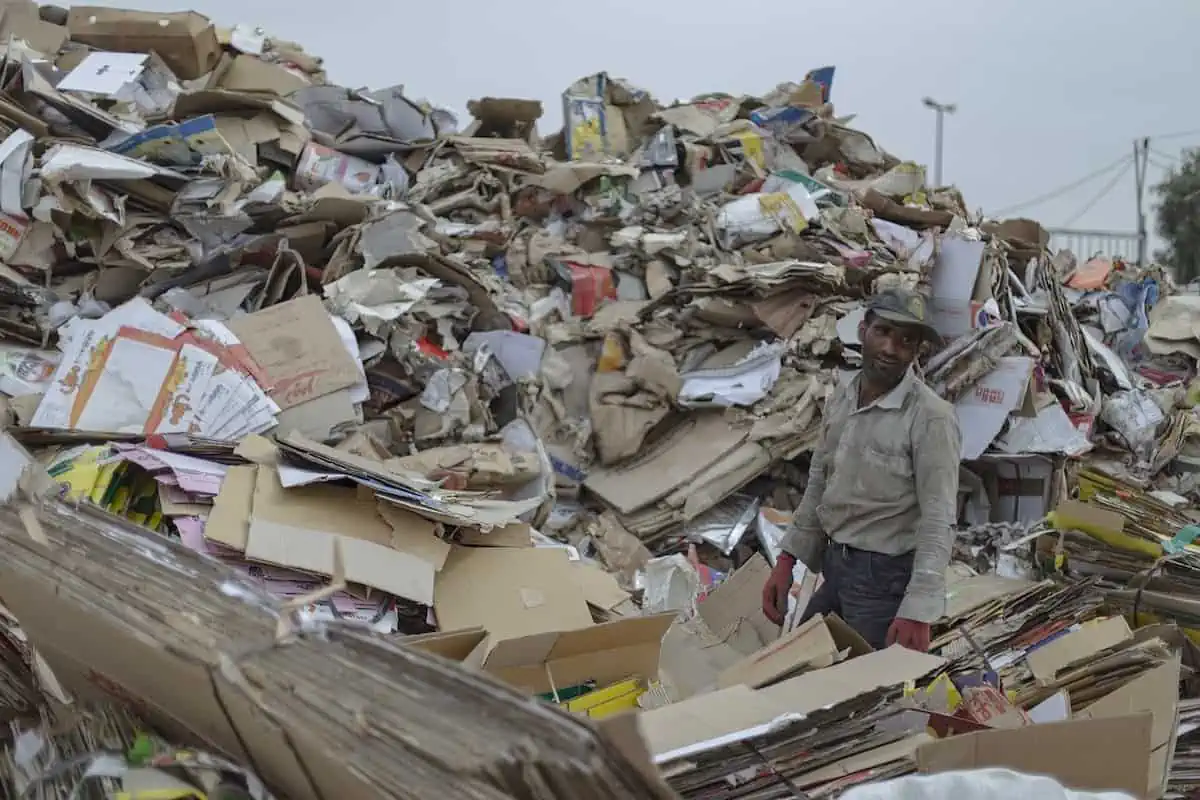As the world continues to grapple with the effects of climate change, businesses have an important role to play in reducing their environmental footprint. One of the key ways to do this is by reducing business waste. From paper to plastic to food waste, businesses generate a staggering amount of waste every year.
Not only does this have a negative impact on the environment, but it can also be a drain on resources, profits, and reputation. Going green is more than just a buzzword today; it’s a necessary step for businesses if they want to remain competitive and sustainable in the long term.
In this article, we’ll explore the importance of reducing business waste and its environmental impact, as well as provide practical tips for businesses looking to go green.
The environmental and health impacts of business waste
Today, landfills around the world are quickly filling up, and the amount of waste generated by businesses is only adding to the problem. The problem with landfill waste is that it produces methane, a potent greenhouse gas that contributes to on-going climate change.
Additionally, the process of transporting waste to landfills contributes to air pollution. Many manufacturing businesses also generate hazardous and toxic waste, which can be harmful to both the environment and human health. Hazardous waste, in particular, can have significant health costs for us and the local wildlife.
Exposure to it is known to cause respiratory problems, skin irritation, and even cancer in some cases. Additionally, toxic waste can seep into soil and water, resulting in land and water pollution that can lead to a range of health problems over time.
Benefits of reducing business waste
Reducing waste has many benefits for any business, including environmental, economic, and social benefits. To begin with, it can help reduce the health and environmental risks associated with waste by adopting green practices. It can also reduce their carbon footprint, which is essential for mitigating the effects of climate change.
Furthermore, it can improve their overall reputation, which can attract customers who are passionate about sustainability as well as employees who want to work for socially responsible companies.
By reducing waste, businesses can also save money on waste disposal costs as well as on the cost of raw materials. Not only this, but it also helps demonstrate their commitment to sustainability, which can improve their brand image and help them stand out in a crowded marketplace.
Common types of business waste
Businesses generate several types of waste, including:
- Paper waste is one of the most common forms of waste generated by businesses. Many businesses still rely on paper for their daily operations, and the amount of paper waste generated can quickly add up.
- Plastic waste is also a significant issue, with many businesses relying on plastics for almost everything including old computers, from manufacturing and packaging to distribution.
- Another common type of waste is hazardous waste, which is generated by many businesses, particularly those in the medical and construction sectors. In almost all cases, it is best to hire a reputable rubbish removal company as hazardous waste requires special handling and disposal.
- Finally, food waste is common with many businesses, particularly those in the food industry, producing significant amounts of food waste.
Ways to reduce business waste
Recycling is one of the most effective ways to manage waste because it reduces the amount of waste sent to landfills while also conserving natural resources. Many materials, including paper, plastic, and metal, can be recycled. Additionally, businesses can also reuse materials, such as paper and packaging, while adopting sustainable practices to reduce waste, including:
- Conducting a waste audit to identify areas where waste can be reduced.
- Implementing a recycling scheme to reduce the amount of waste sent to landfills.
- Reducing the amount of packaging used.
- Encouraging employees to use reusable containers and utensils.
- Implementing energy-efficient practices to reduce the amount of energy used.
- Implementing a composting programme to reduce food waste.
- Encouraging employees to conserve resources, such as water and paper.

Other best practices for waste reduction in the workplace
Reducing waste in the workplace requires a concerted effort from everyone in the organisation. There are several best practices that businesses can follow to manage their waste, including:
- Providing training workshops to employees on waste reduction and recycling.
- Reducing the amount of paper used through digital communication and document management.
- Encouraging employees to turn off lights and appliances when not in use.
- Implementing energy-efficient appliances and equipment.
- Encouraging employees to carpool or use public transportation.
- Finally, businesses can reduce their waste and improve their environmental impact by using eco-friendly products or suppliers, ranging from cleaning supplies to stationery.
In conclusion, reducing waste is essential for businesses that want to remain competitive and sustainable in the long term. It can also reduce their carbon footprint, save money on waste disposal costs, attract more customers who care about sustainability, and improve their overall reputation.
By implementing proper waste management strategies such as recycling and reusing, businesses can significantly reduce their carbon footprint while also standing out from the competition.
Article and permission to publish here provided in collaboration with Greenline Environmental. Originally written for Supply Chain Game Changer and published on June 22, 2023.
Cover image by mostafa meraji from Pixabay

